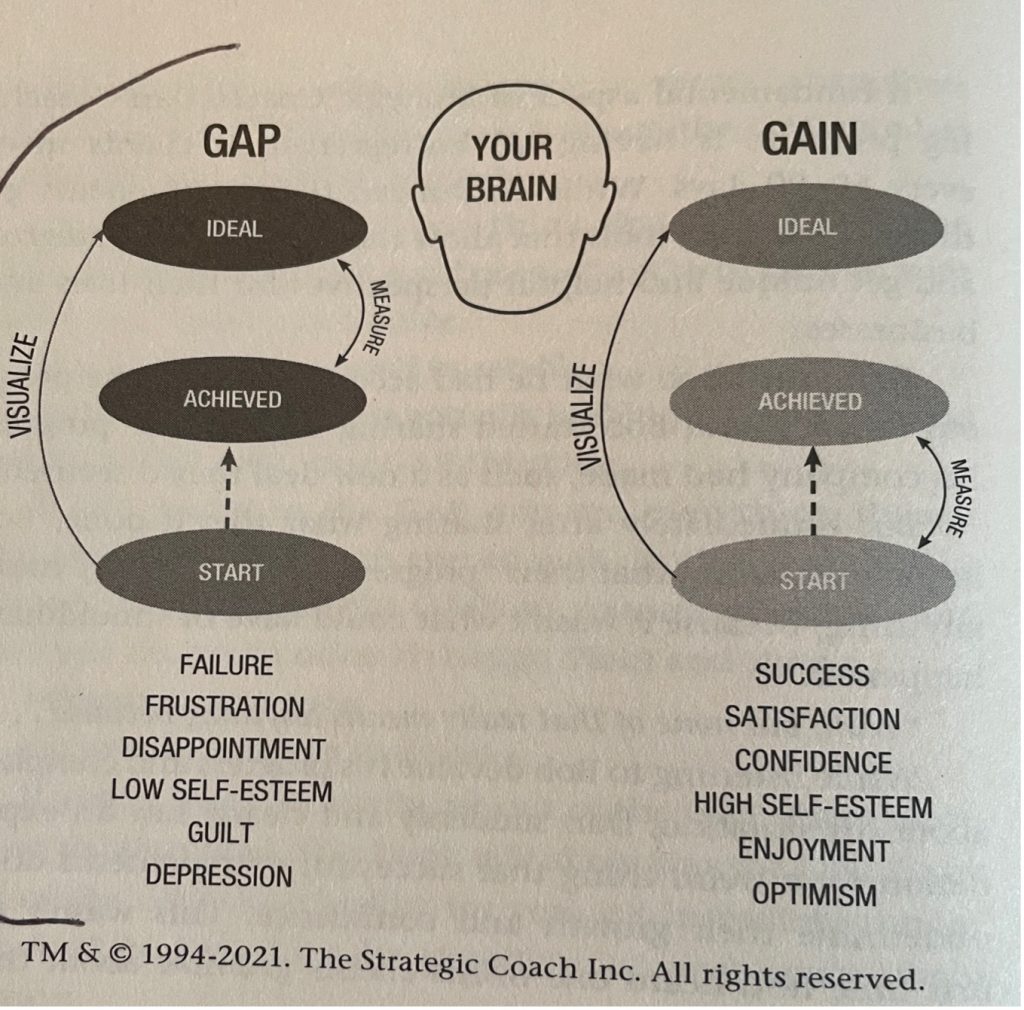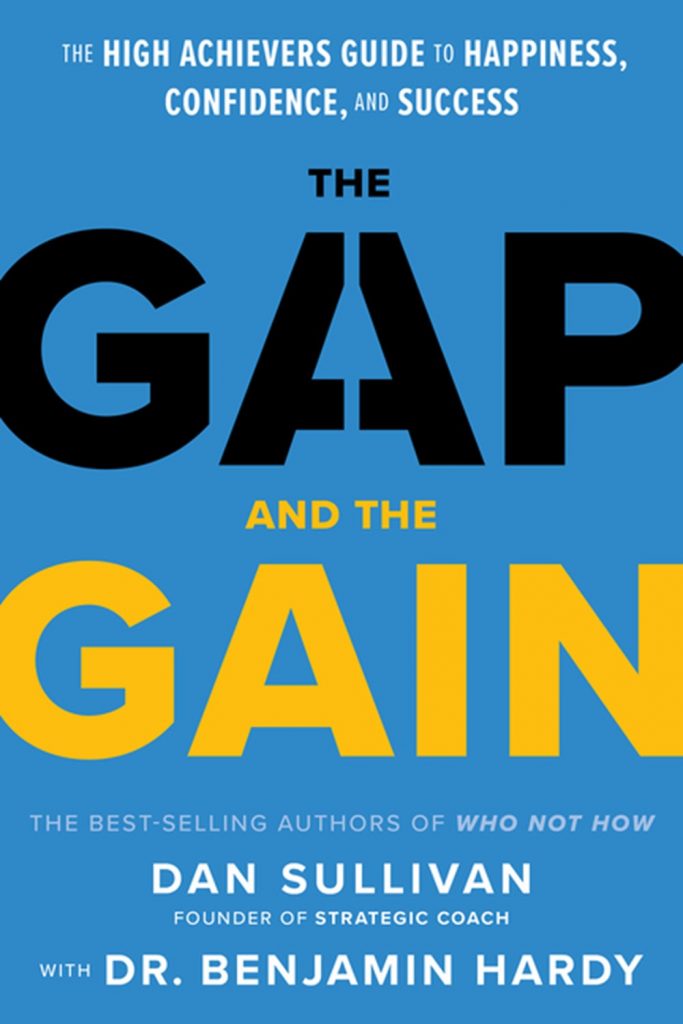Dan Sullivan
The way to measure progress is backwards against where you started, not against your ideal. By saying this is something we’re pursuing the direct implication is that we don’t have it now.

You’re in the every time you measure yourself for your situation against an ideal.
The reason hedonic treadmill exists because people aren’t taught how to be happy. Ideals are meant to provide direction, motivation and meaning to our lives. They are not the measuring stick. Our society has trained us to measure ourselves in ideals, which by definition are unreachable.
In the game, you focus on what you’ve actually done. You measure your gains and use those gains to create more and better gains in your future.
I’ve learned that when something very emotional happens to me, it stays with me until I’ve converted it into lessons. Before I knew this was the case, I could become paralyzed by negative experiences for long periods of time.
When you gap about someone else, all you see is where they’re not measuring up. You only see their flaws. You don’t see their gains or growth.
What is reason that our public education system may hinder creativity and autonomy is how success is measured. A reference point is a standard for evaluation and comparison. In school, each child is measured against the reference points of national averages on test scores. In other words, each child is measured against other children, and given a percentile rank of how they match up to other children their age.
Percent of people use social media websites for the specific purpose of comparing themselves with others, nearly 100% of those comparisons are “upward social comparisons,” meaning people are comparing themselves with those they perceive to be above or are better than them. No wonder the more time you spend on social media, the less self-esteem you’ll have and the more depressed you’ll be. No wonder suicide and addiction rates are skyrocketing among teens and adolescents. The majority of their lives are spent being compared to others by teachers, parents, peers, and even themselves.
Spend 20 to 30 minutes with no distractions writing down your answer to this question: “I know I’m being successful when…”
Philosopher Seneca called it euthymia which means “that you’re on the right path and not lead astray by the many tracks which cross your of people who are hopelessly lost.”
The British rowing team, who had not won an Olympic gold since 1912, developed a useful filtering process that led them to be a gold medal team in 2000. They did a one question filtering response to every single decision they made. This one question allowed them to measure every situation, decision, and obstacle — and to not get derailed where most people do. With every decision or opportunity, every member of the team asks themselves: will it make the boat go faster? I did use the single measure of their decision filter to quickly escalate their unity, skills, conditioning, and training.
Research shows that optimistic people often live 10 years longer than pessimistic people.
Can you change the context, you change the meaning. The meaning determines the psychological and physical impact of the content. The most fundamental context for everyone, and every situation, is how they measure the value of their developing experiences is either negative or positive. Are they in the gap or in the gain?
Recent shows that imagining the absence of a positive event in your life has a more powerful effect on you than simply looking back on that positive event. Likewise, imagining the absence of an important person in your life can be more powerful than simply appreciate the fact that they were in your life.
What if you literally and immediately lost whatever you went into the gap about? You complain about your job: now you’ve lost it. You complain about your house: no it’s gone. You get upset that your child made a mistake: now they’re gone from your life for good.
Thankfully in the real world we don’t literally lose the thing we go into the gap about. But we do damage it. We damage our own experience. And when it comes to other people, we damage them as well.
In performance Ology, there is a concept known as implementing intentions, which is a strategy to plan for the worst — so you can perform your best.
And there’s only one way to measure success. You measure success backward by looking at where you are now compared to where you were before.
The last hour of your day can be a gain hour — one that positively transforms how well you sleep as well as your entire next day. What you do during the hour before your bed bedtime — the sweet spot — is critically important. Your behaviors before bed are coded into your long term memory. While you’re sleeping, your brain processes everything you experienced that day. But not everything equally. This is why top performing athletes create visualizations of success just before they go to sleep. Kayla Harrison, the two time judo Olympic gold medalist said, every night I visualize myself winning the Olympics, standing on top of the podium, singing the national anthem, watching the American flag go up.” What do you during the hour before bed sets the tone for the rest of your life.
I staring at your phone right before bed is one of the worst things you can do if you want to live an affective, present, and happy life. It has a negative impact on your identity and mindset.
Always measure backward. Measure three wins each day.
Alex Banayan is a highly flexible person. In his book The Third Door, Alex writes that success is like a nightclub:
First door: the main entrance, we’re 99% of people wait in line, hoping to get in. The second door: the VIP entrance, where the billionaires and celebrities slip through. But when no one tells you is that there is always, always, always the third door. It’s the entrance where you have to jump out of line, run down the alley, bang on the door 100 times, crack open the window, sneak through the kitchen – there’s always a way.
